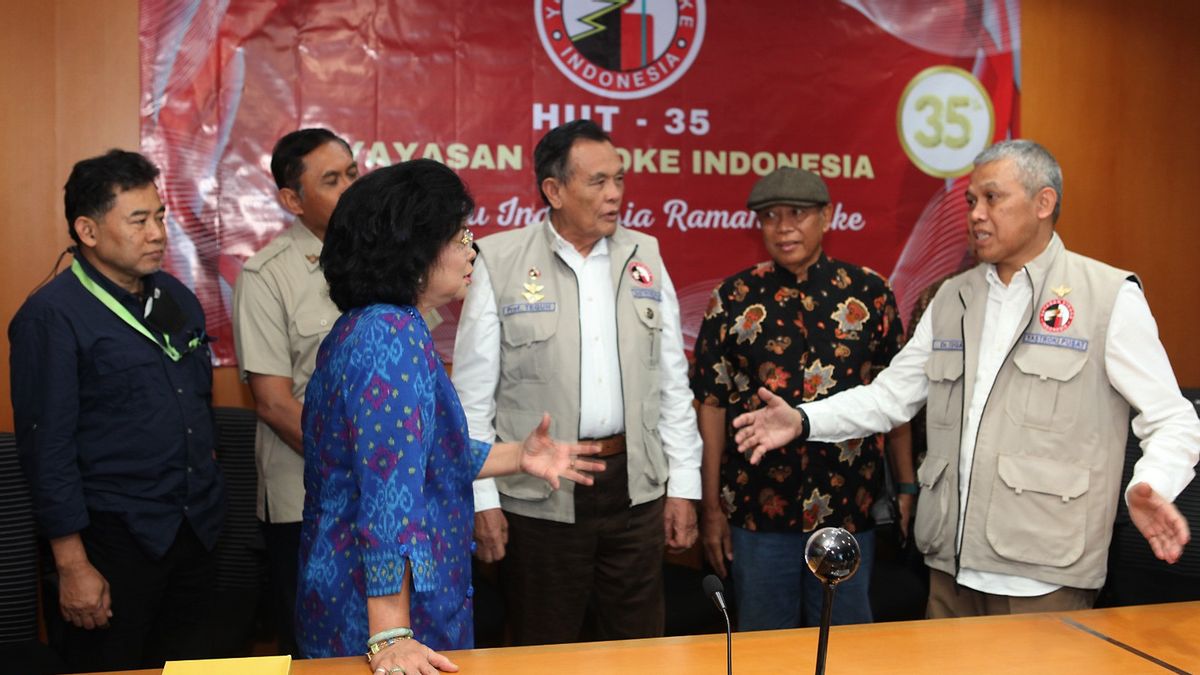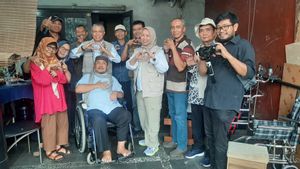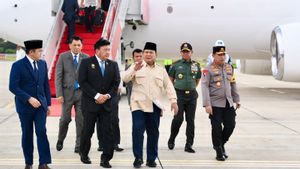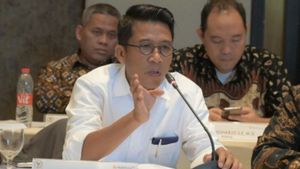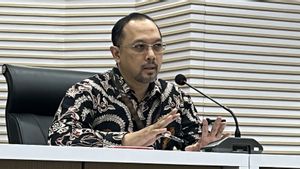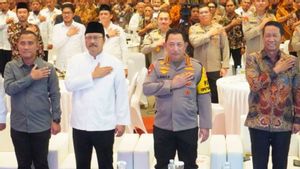JAKARTA - Brain disasters or strokes in Indonesia hit more than 2.1 million people aged 15 years and over. This is the cause of death. According to Linda Agum Gumelar, handling this problem the government must collaborate with the community.
Linda Amalia Gumelar, former Minister of Women's Empowerment & Child Protection, United Indonesia Cabinet, urged the government to cooperate in involving community institutions. Without such efforts, it is impossible because of limited capabilities. "The government must involve community institutions," he said, Saturday, January 20, at the Office of the Indonesian Stroke Foundation (Yastraki), Menara Kuningan, Jl. R Rasuna Said, South Jakarta.
Linda in a statement that afternoon, accompanied by the ranks of the supervisory board, Yastroki's supervisory board consisting of Prof. Dr. Dr. Dr. Teguh Ranakusuma, Major General (Ret.) Eddy Rate M., SH, MH, and General Chairperson Major General (Ret.) Dr. dr. Ratmono's duties, SpN, MARS, MH.
The Ministry of Health recorded a stroke population in Indonesia based on the results of a doctor's diagnosis in 2018 totaling 2,120,362 people.
Expenditures for medical expenses and treatment by the Health Social Security Administration (BPJS Kes) recently, an increase of IDR 1 trillion a year. The previous year was around IDR 2 trillion, to the range of IDR 3 trillion.
The stroke is explained by Dr. Duties, similar to the death of life. Suffering takes place chronicly. Risk of losing the freedom of activities inside and outside the home. Even had to be dismissed as a workforce.
SEE ALSO:
The originators of stroke attacks include stress characterized by anger. "I got a stroke, I was often angry at work," said Suhadi, a survivor or someone who managed to get out of a stroke attack.
Suhadi's footsteps experienced muscle stiffness. A similar confession was put forward by a number of other stroke survivors.
The presence of Linda Gumelar is related to a series of commemorations of the 35th Anniversary with the theme Yastroki Towards an Indonesia Friendly Stroke.
Partners were also present from elements of drug manufacturers, health service providers, medical professional organizations as well as non-governmental organizations that collaborated to minimize brain disaster problems or stroke, namely the Indonesian Health Emergency Volunteer Community (KREKI), the Kreshna Foundation, and the Jakarta Weltevreden Foundation.
The English, Chinese, Japanese, Arabic, and French versions are automatically generated by the AI. So there may still be inaccuracies in translating, please always see Indonesian as our main language. (system supported by DigitalSiber.id)
